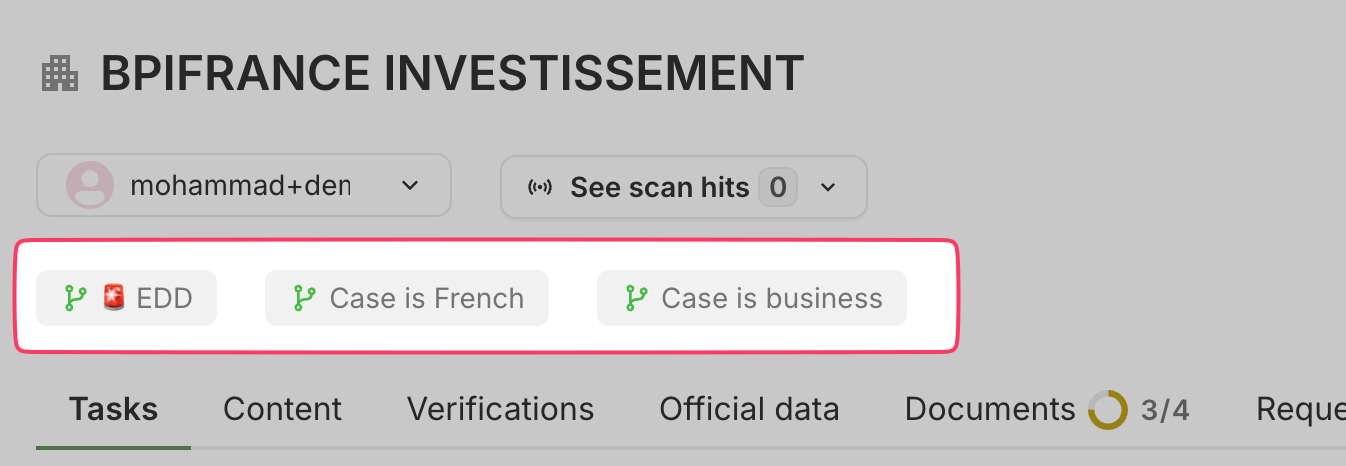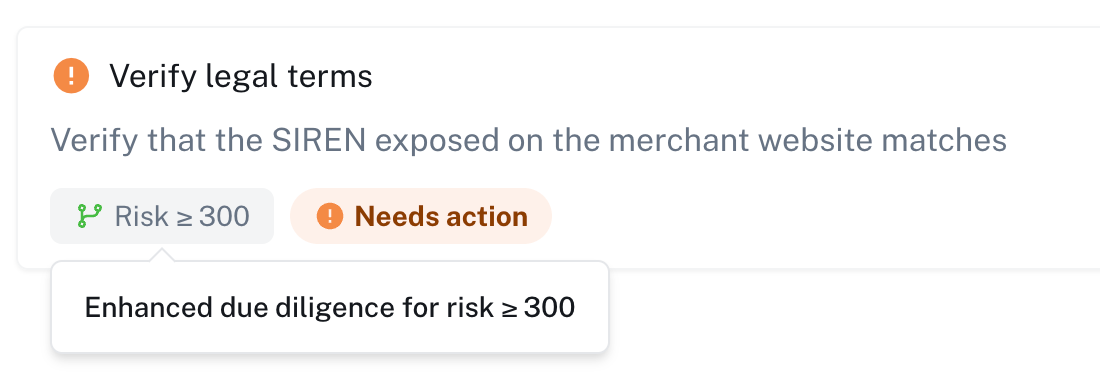Tasks
Tasks are units of a verification process configured in an Ondorse workflow.

A task can either be run as part of running the whole workflow with
or run individually either as an initial run or to re-run a task
If a case data that may affect a task result changes, the corresponding tasks will be greyed out, and the following message will be displayed: "Data used by this task changed since it last ran. Please run again."
Once a task has run, the detailed results can be accessed by clicking on the See results button.
Types of task
Ondorse provides a library of tasks to be added to a workflow. They represent the common units of verification process.
E.g:
- Compare content with official register
- Order documents
- Add UBOs from official register
- Add directors (individuals) from official register
- Legal authorization
- Screening businesses
- Screening persons
- Document forgery check
- Information collection verification
- Verify business exists
- Verify identity document
- Verify email
- Verify phone number
- Verify VAT information
- Verify IBAN
- Manual task
- ... and much more. 👈explore the Tasks menu to see all tasks
Task activation conditions
Task activation conditions feature allows to set criteria for task activation within a workflow. An active task in a workflow is a task that is required to make a decision on a case while inactive tasks are not.

Compliance by designThis approach ensures that compliance requirements — even the more complex or custom ones — are integrated into the workflow structure from the outset. As a result, your compliance processes in Ondorse always align closely with the compliance policy used to configure your workflow.
Said otherwise, the conditional tasks allow you to implement a refined risk-based approach to anti-money laundering and countering the financing of terrorism by triggering verification tasks upon certain criteria such as the product you are selling, the distribution channel, the legal type, geographical criteria etc.

An example of a task with an activation condition based on risk score
Activation conditions criteria are very customizable because they directly leverage the flexibility of Ondorse's Rules engine. Examples of activation condition criteria can include:
- Risk score: conditions can be based on risk assessments using the risk score. If a case risk score exceeds a predefined threshold, certain tasks might become active to address the elevated risk.
- Case characteristics: activation conditions can be based on specific attributes or custom fields of the case in question. For example, a task can be active only if the legal type is an association because your compliance requires specific documents in this case.
- Red flags on related entity: activation conditions can take into account properties or attributes of related entities, such as persons or companies associated with the case. For instance, a condition might be triggered if a related person is based in a country considered as risky by your compliance policy.
- Other tasks results: activation conditions can be configured to take as input the results of other tasks within the workflow. For example, if the screening task detects PEPs, an activation condition can be set to trigger a follow-up due diligence task, ensuring that additional scrutiny is applied only when necessary.
Updated 4 months ago